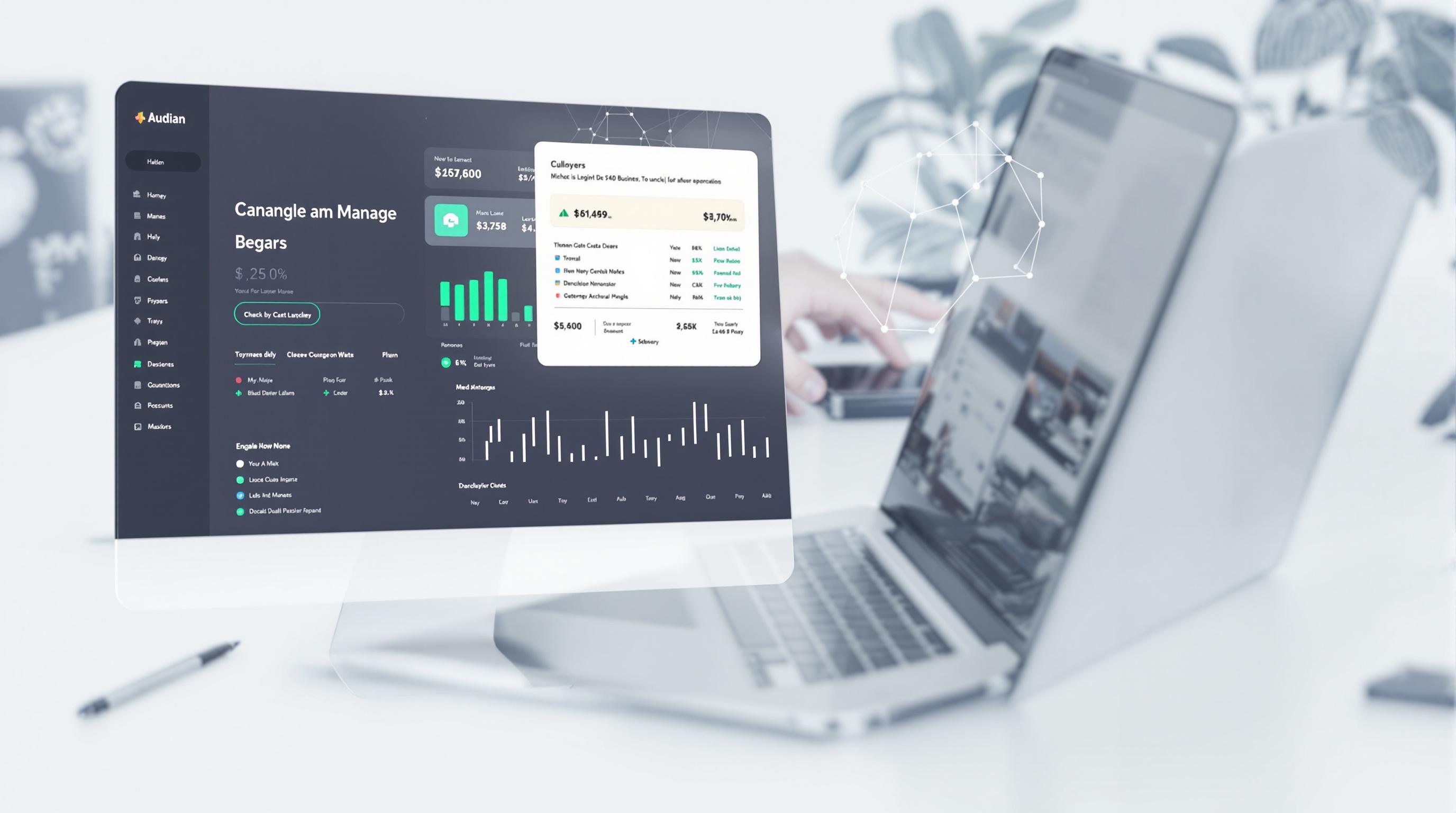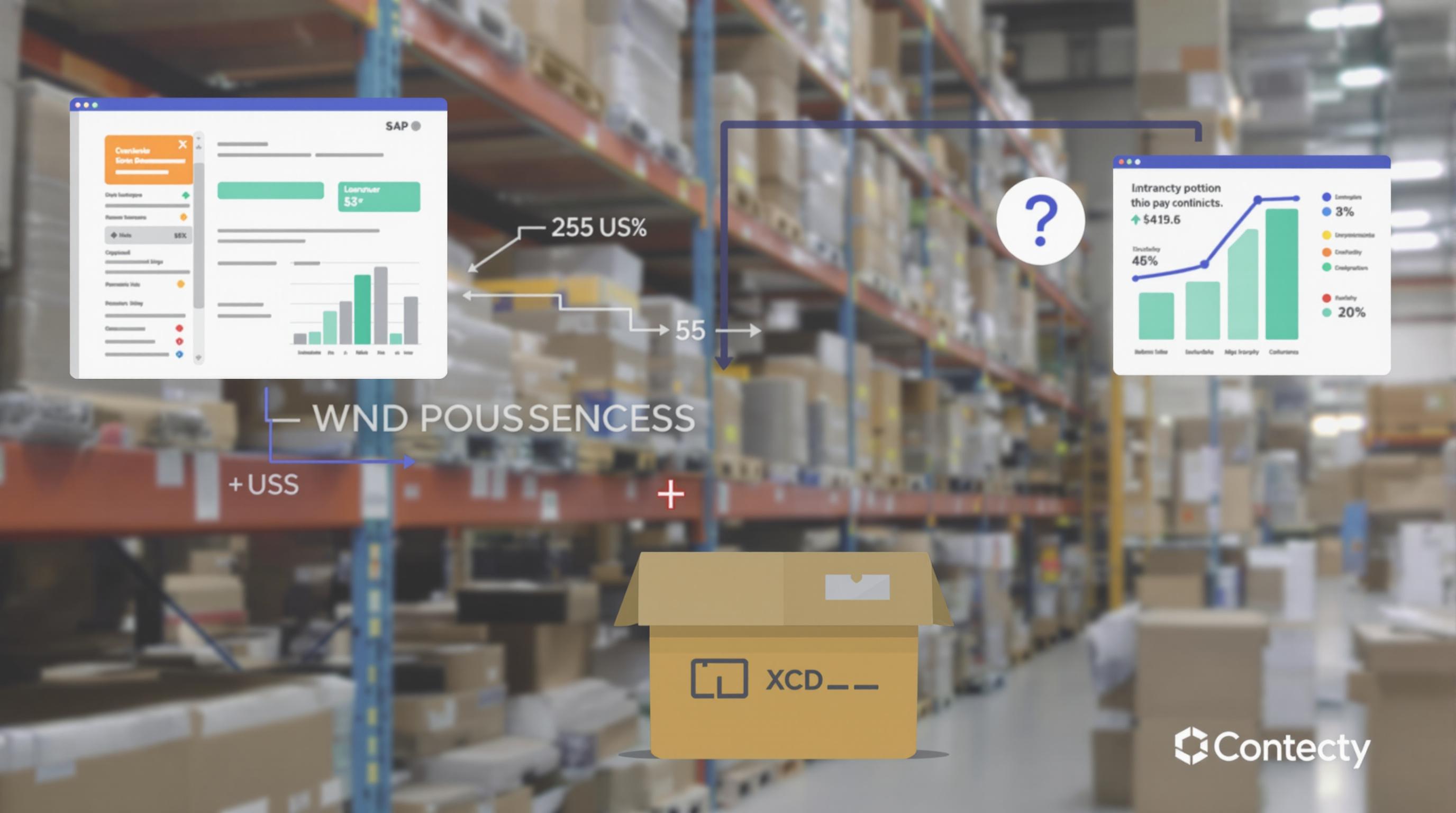Related Articles
- How Emotional Spending Biases in Leadership Can Influence Company Financial Transparency and Accountability
- Unveiling the Role of Employee Psychology in Shaping Unexpected Business Budget Outcomes
- Top 6 Disruptive Invoice Platforms Launched Since 2019 Tackling Automation Bottlenecks in Unconventional Ways
- Top 6 Smart Accounting Softwares Since 2019 That Revolutionize Tracking Business Tax Write-Offs
- The Rise of Biometric Authentication in Digital Finance: A New Frontier for Secure Business Transactions
- How Small Nonprofits Leverage Alternative Finance Tools to Navigate Accounting Challenges Off the Radar
Top 7 Next-Generation Financial Platforms Launched Since 2019 Transforming Small Business Accounting
Top 7 Next-Generation Financial Platforms Launched Since 2019 Transforming Small Business Accounting
Top 7 Next-Generation Financial Platforms Launched Since 2019 Transforming Small Business Accounting
Small businesses have always faced unique challenges in managing their finances effectively. However, recent innovations in financial technology have introduced powerful tools that simplify accounting and streamline bookkeeping. Since 2019, several cutting-edge platforms have emerged, equipped with AI, automation, and cloud capabilities, enabling small business owners to focus more on growth and less on manual accounting tasks.
These next-generation platforms not only automate tedious tasks but also provide valuable insights into cash flow, expenses, and profitability. They integrate seamlessly with other business tools, support multiple currencies, and adhere to compliance standards globally. This article explores the top seven financial platforms launched since 2019 that are transforming small business accounting.
Each platform on this list offers unique features tailored to the modern small business environment. We will examine what makes them stand out, their core functionalities, and how they can revolutionize your financial operations.
1. QuickBooks Live (Launched 2019)
QuickBooks Live is an evolution within the Intuit QuickBooks ecosystem tailored to small businesses requiring professional bookkeeping assistance combined with advanced software. Launched in 2019, it offers a hybrid model where small business owners receive expert bookkeeping help alongside the familiar QuickBooks Online interface.
Users benefit from real human bookkeepers who maintain their financial records, reconcile accounts, and categorize transactions. This reduces errors and saves time, especially for owners without an accounting background. Additionally, real-time financial statements and reports are available, improving financial visibility.
QuickBooks Live’s integration with payroll, tax filing, and payment processing provides a comprehensive financial platform. The service enhances accuracy and productivity by combining AI assistance with human expertise, making it a leader in small business accounting transformation.
2. Xero HQ (Expanded Features Since 2019)
While Xero was founded earlier, its 2019 feature expansions, branded as Xero HQ, empowered small business advisors and owners with centralized financial control. Xero HQ is a cloud-based hub that consolidates client accounting and advisory tools, enabling collaborative management of bookkeeping, invoicing, and payments.
The platform offers insightful analytics, automated bank feeds, and smart invoicing workflows. Small business owners can track financial health in real-time and automate recurring transactions. The scalable nature supports growth and integrates with hundreds of third-party apps, effectively adapting to diverse business needs.
Xero HQ’s modern interface and mobile-friendly design promote accessibility and user engagement. The platform's commitment to security and continuous updates maintains compliance with financial regulations worldwide, ensuring small businesses stay ahead of accounting complexities.
3. FreshBooks Advanced (Released 2019)
FreshBooks Advanced debuted in 2019 as an upgraded version of the user-friendly FreshBooks invoicing and accounting software. This platform focuses on enhancing productivity for small businesses by introducing automation, advanced reporting, and project profitability tracking.
Accounting tasks like expense tracking, time billing, and client management are streamlined through FreshBooks Advanced. The software integrates with popular payment gateways and tax software, simplifying the end-to-end financial workflow. Additionally, automated reminders improve cash flow with timely invoice payments.
By combining intuitive design with automation, FreshBooks Advanced enables small business owners to manage accounting efficiently without needing extensive financial expertise. It is ideal for service-based businesses seeking flexible and precise financial management tools.
4. Zoho Books (Innovations Post-2019)
Zoho Books underwent significant innovation starting after 2019, evolving as a robust cloud accounting solution tailored for small businesses and startups. Its extensive suite encompasses invoicing, expense tracking, inventory management, and automated workflows.
The platform’s AI-driven features optimize cash flow forecasting and transaction categorization, reducing manual input. Zoho Books supports multi-currency and multi-language operations, making it valuable for small businesses engaged in international trade.
Moreover, Zoho Books integrates seamlessly with other Zoho products and third-party apps like payment processors, enhancing a holistic financial ecosystem. Its mobile app and customizable dashboards deliver real-time insights, helping business owners make informed accounting decisions.
5. Wave Financial (Mobile App Update 2020)
Wave Financial introduced a major update to its mobile app in 2020, improving access to free accounting, invoicing, and receipt scanning services for small businesses. Wave has been notable for providing a strong no-cost solution tailored toward freelancers and micro-businesses.
The updated app features real-time bank and credit card transaction syncing, expense tracking, and integrated payment processing. Small business owners can create professional invoices and receive payments directly through the platform. The intuitive interface ensures that even those without accounting backgrounds can manage their finances competently.
Wave Financial’s commitment to accessibility and affordability alongside its cloud infrastructure has made it a transformative platform especially for start-ups and very small enterprises seeking basic yet powerful financial management.
6. Sage Business Cloud Accounting (Revamped Since 2019)
Sage Business Cloud Accounting has undergone considerable enhancements since 2019, driving efficiency with cloud-based automation and AI integration. This globally recognized accounting software is particularly favored for its scalability and compliance capabilities.
The platform automates invoicing, payment reconciliation, and VAT reporting, considerably reducing administrative overhead. Small businesses can benefit from Sage’s expansive ecosystem connecting banking, ERP systems, and payroll, centralizing financial management.
Real-time dashboards provide visual financial insights, and Sage’s secure infrastructure ensures data privacy, which is essential for confidence in cloud accounting. Its continuous improvements demonstrate Sage’s commitment to empowering small businesses with technological advancements.
7. Bench Accounting (Growth and Features Since 2019)
Bench Accounting has experienced rapid growth since 2019 by combining bookkeeping software with dedicated bookkeepers who review accounts and prepare monthly financial statements. This hybrid service model caters to small business owners who prefer to outsource bookkeeping but maintain oversight.
The platform’s clean user interface displays financial health clearly, while their backend team ensures accuracy and compliance with accounting standards. Bench also supports tax preparation integration, streamlining year-end reporting.
By offering personalized support alongside automated tools, Bench Accounting allows small businesses to focus on strategic decisions rather than daily bookkeeping chores. Their approach exemplifies the next-generation trend of human-centered financial technology.
Impact on Small Business Accounting
Collectively, these platforms have reshaped how small businesses handle their accounting. Automation reduces errors and repetitive tasks, while cloud access means business owners can manage finances anytime, anywhere. Advanced analytics and AI provide predictive insights, assisting with cash flow management and strategic planning.
The rise of hybrid models, combining software with expert human support, addresses the need for accuracy and personalized guidance. Integration with other business tools creates streamlined workflows, improving overall operational efficiency.
Importantly, these next-generation financial platforms promote financial literacy by simplifying complex processes. The democratization of advanced accounting technology empowers small businesses to compete more effectively in the market.
Looking Ahead: Future Trends
The evolution of financial platforms since 2019 signals a strong trajectory toward more intelligent, interconnected, and user-friendly systems. Technologies such as machine learning, blockchain, and open banking APIs are expected to play a larger role in next-generation accounting tools.
Future platforms will likely emphasize customization and predictive analytics, delivering even deeper business insights while enhancing security through decentralized ledgers. Enhanced mobile capabilities and voice-command features may also transform user interaction with financial data.
As small businesses continue to adopt digital financial management solutions, ongoing innovation will focus on simplifying compliance and adapting to rapidly changing regulatory landscapes worldwide. The platforms reviewed here lay the foundation for this promising future.
References
1. Intuit QuickBooks Live Overview, Intuit.com, 2019
2. Xero HQ Product Update, Xero.com, 2019
3. FreshBooks Advanced Release Notes, FreshBooks.com, 2019
4. Zoho Books Product Innovations, Zoho.com, 2020
5. Wave Mobile App Update Announcement, Waveapps.com, 2020
6. Sage Business Cloud Accounting Features, Sage.com, 2021
7. Bench Accounting Growth Report, Bench.co, 2022




